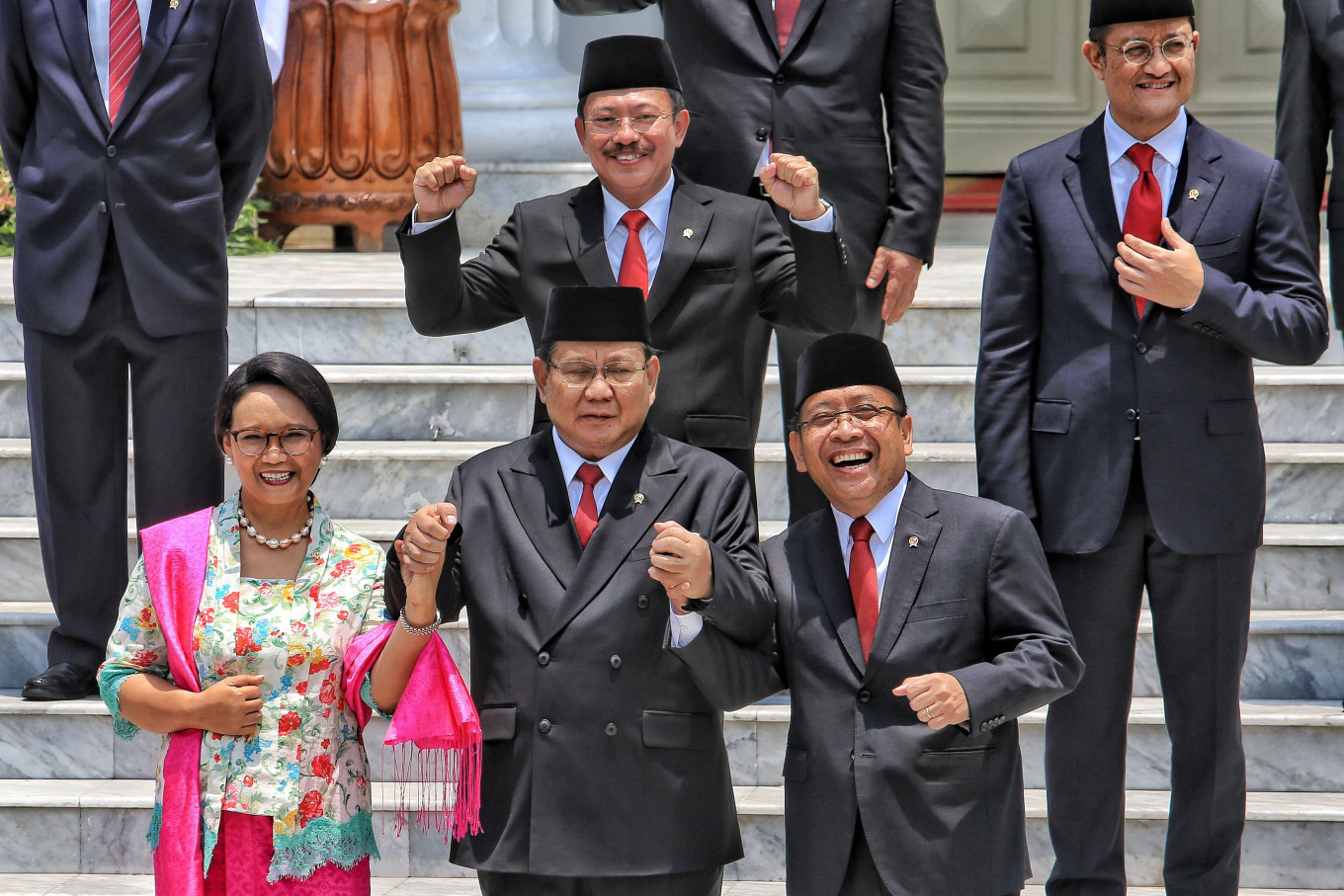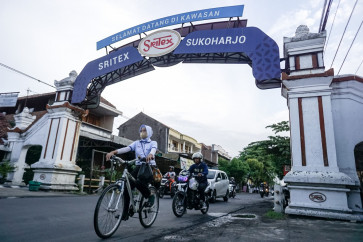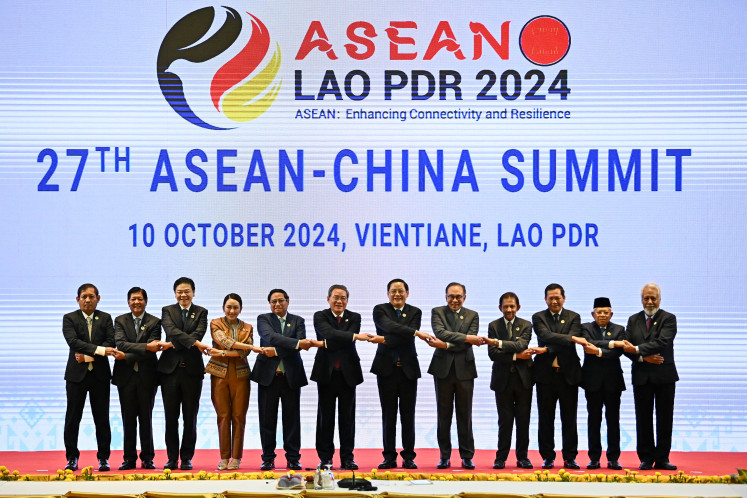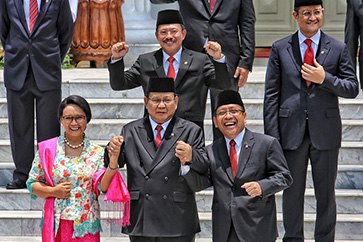Expanding triumvirate to quintumvirate
The triumvirate concept in the 1945 Constitution sets out the line of succession system for national leadership. If the sitting president and vice president are permanently unable to perform their duties, the presidential line of succession follows the order of three main political actors: the home minister, defense minister and foreign minister. The main objective of this concept intends to guarantee continuity of government in the event of a constitutional or political crisis, to prevent a power vacuum in government.
Change text size
Gift Premium Articles
to Anyone
 The triumvirate concept in the 1945 Constitution sets out the line of succession system for national leadership. If the sitting president and vice president are permanently unable to perform their duties, the presidential line of succession follows the order of three main political actors: the home minister, defense minister and foreign minister. The main objective of this concept intends to guarantee continuity of government in the event of a constitutional or political crisis, to prevent a power vacuum in government. (JP/Seto Wardhana)
The triumvirate concept in the 1945 Constitution sets out the line of succession system for national leadership. If the sitting president and vice president are permanently unable to perform their duties, the presidential line of succession follows the order of three main political actors: the home minister, defense minister and foreign minister. The main objective of this concept intends to guarantee continuity of government in the event of a constitutional or political crisis, to prevent a power vacuum in government. (JP/Seto Wardhana)
A
s the newly elected members of the People’s Consultative Assembly (the Assembly) begin the 2019-2024 term, the revision of the 1945 Constitution has become an increasingly hot topic. This issue currently involves the restoration of the Assembly's authority to reintroduce the State Policy Guidelines (GBHN) and to fully repeal the amendment of the 1945 Constitution, which means returning back to the original document. This issue can actually be understood as an effort to restructure the state’s authority.
If this assumption is proven to be true, then we should not overlook one specific issue related to the amendment; to what extent can our laws respond to a potential constitutional or political crisis in the coming years? Furthermore, will the adopted conception of a triumvirate be able to ensure the continuation of government? These reflective questions are closely linked to the triumvirate concept enacted in Article 8 (3) of the 1945 Constitution, which regulates the succession line of national leadership.
The triumvirate concept in the 1945 Constitution sets out the line of succession system for national leadership. If the sitting president and vice president are permanently unable to perform their duties, the presidential line of succession follows the order of three main political actors: the home minister, defense minister and foreign minister. The main objective of this concept intends to guarantee continuity of government in the event of a constitutional or political crisis, to prevent a power vacuum in government.
In the newly formed Cabinet, the ministers are, respectively, former National police chief Gen. Tito Karnavian, former Special Forces chief and former presidential candidate Prabowo Subianto and Retno LP Marsudi.
Article 8 in the original document of the 1945 Constitution did not include a provision that detailed the line of succession in the event of a power vacuum. Only after the amendment of Article 8 was an additional clause included that regulates this specific issue.
This topic is closely related to the history of constitutional laws during the Indonesian national revolution period from 1945 until 1949. The second Dutch “military aggression” brought down the national government, captured the capital and even seized the state leaders and officials. To address the power vacuum at that time, an emergency government was formed in West Sumatra from 1948 to 1949. Learning from that historical event, it was understood there was an urgent need to form a principal to respond to such a constitutional crisis, with the principle later included in the fourth amendment of the 1945 Constitution.
Therefore, the inclusion of paragraph (3) of Article 8 in the Constitution was actually an effort to institutionalize this previous constitutional practice, to ensure the government continues to function in the event of a constitutional emergency.

















